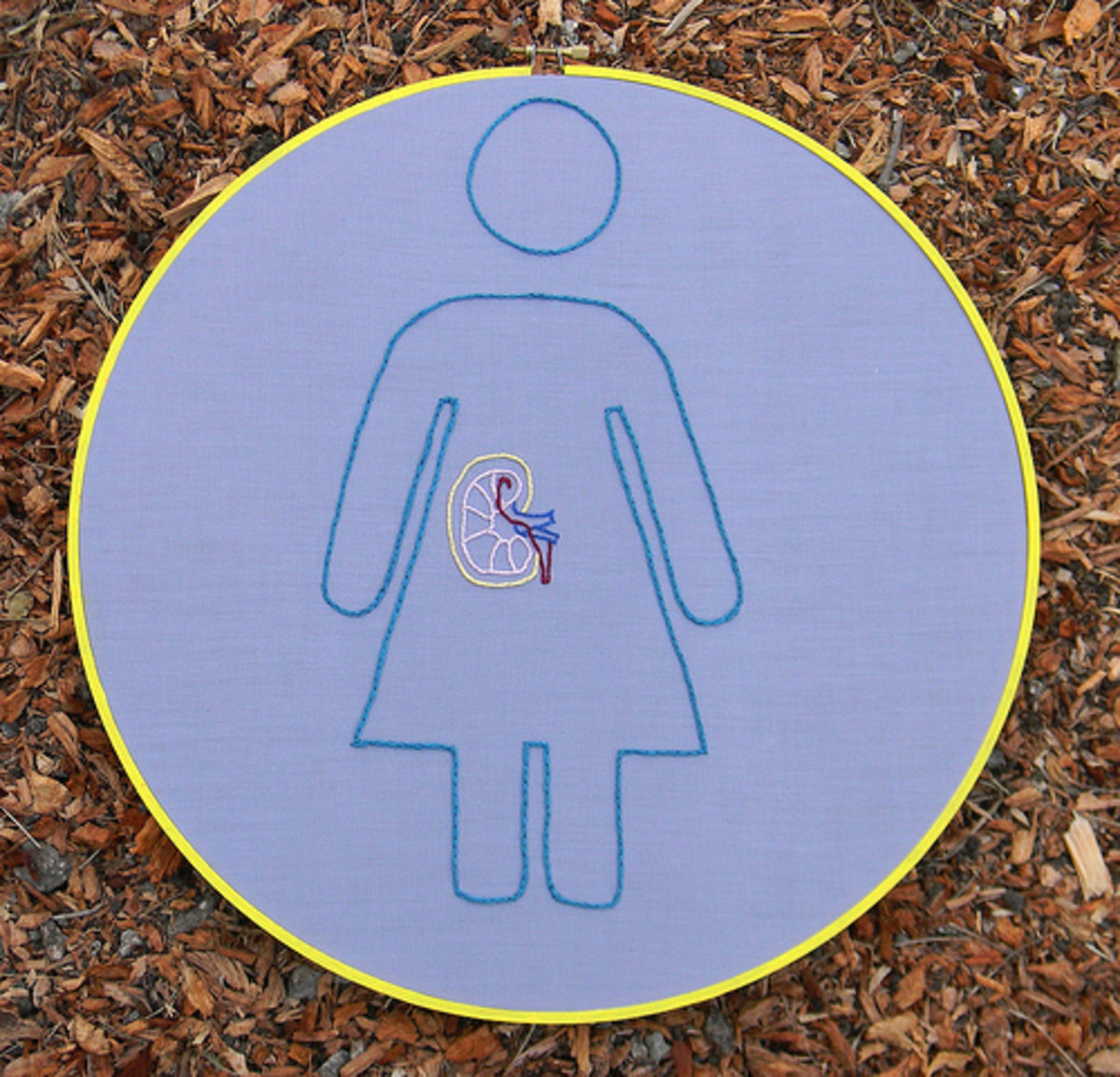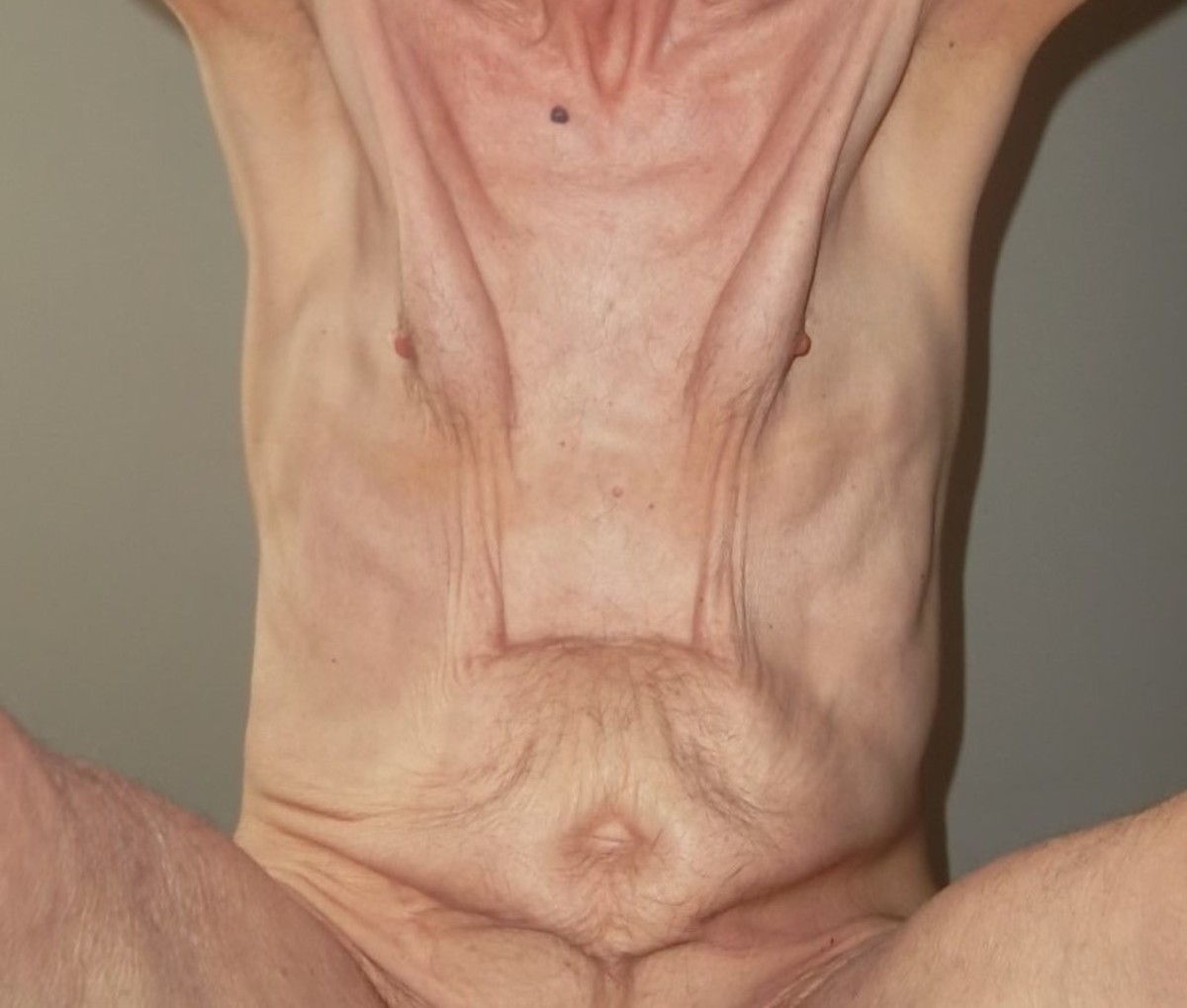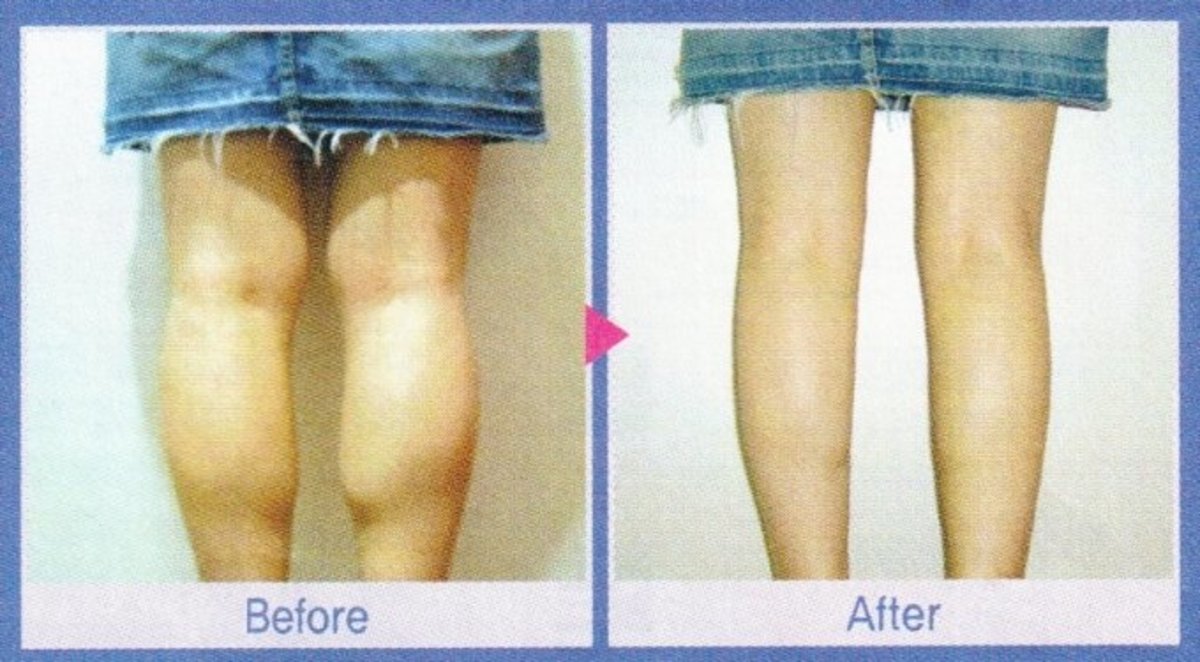Body Contour Surgery
How to Prepare for Cosmetic Surgery
Body contour surgery is just as serious as any other type of surgery. Just because it is generally termed "cosmetic" doesn't mean the risks are any less. Contour surgery generally follows an extreme weight loss due to a surgical procedure. The importance of taking a few preparatory measures is vital to a healthy physical, as well as mental outcome.
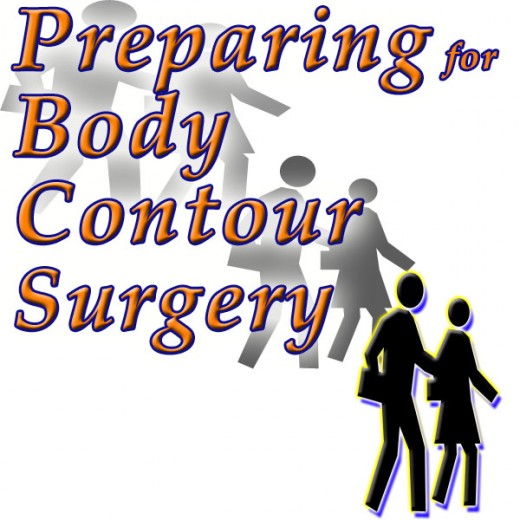
What is Body Contour Surgery After Weight Loss
Body contouring is a type of plastic surgery created to address specific abnormalities or irregularities in the shape of your body. These kinds of procedures are designed to restore the body's contour, skin tone, and proportion.
Following a significant weight loss, just about any part of the body can be affected. The type of abnormality is generally outside of what traditional plastic surgeons contend with. For those people who have lost more than 50% of their excess weight, body contour surgery will remove significant portions of excess skin and sagging fat—this will probably include tightening the underlying tissues and liposuction to remove fat deposits.
Body Surgery Gone Too Far
Preparing for Contour Surgery
Today we will be discussing a few important issues surrounding preparing for body contour surgery. All of which can help you know what to do before hand, how to be ready for the big day, and dealing with the aftermath of having body surgery.
What You Think Really Does Matter!
Have you, or someone you know had body contour surgery?
Before Having Body Contour Surgery
A positive approach to having any kind of surgery plays a real role in how you will respond to the follow-up events. Here are seven things to take into consideration when planning for Contour Surgery:
7 Things to Expect Before Having Plastic Surgery
- Medical Evaluation and Clearance
- Nutritional Concerns
- Medications You Will Need
- Medications and Supplements to Stay Away From
- Autologous Blood Donation
- No Smoking, No Alcohol
- Hygiene and Hair
Medical Evaluation for Body Contouring Surgery
Lab Tests For Cosmetic Surgery
Your Plastic Surgeon will need to get several routine tests and evaluations completed prior to you having surgery. You may even be referred to your regular primary care Doctor, who will get these tests ordered for you. Your doctor will then send any results to your plastic surgeon.
CBC Blood Test For Cosmetic Surgery
The complete blood count (CBC) test is the most common test used to find anything abnormal in your blood. A CBC includes thirteen tests stemming from, blood cell counts to platelets counts to assure the blood is healthy enough and will have the important capabilities of clotting and healing following your procedure.
5 Tips for Recovering After Cosmetic Surgery
- Have thick sanitary napkins on hand to help absorb fluids from drain sites.
- Clean your house completely before having surgery; you won't be up to cleaning for at least a couple weeks. Get family and friends (or hire a housekeeper) to help you post-op.
- Make sure you have entertainment, like books, puzzles, music, TV and remote, set-up before having the surgery.
- Plan on wearing loose fitting comfortable clothing for a while.
- Make sure you have easy to reach communication. Put a bell, intercom, or a telephone right next to you on the night stand for easy access.
CMP Blood Test For Cosmetic Surgery
Another test your surgeon will likely order is a comprehensive metabolic panel (CMP). This test consist of fourteen different tests that your doctors will use to make sure that your organs are all in functioning condition. This test looks at electrolyte deficiencies, which keep your heart and body parts working properly. This tests will also measure your nutritional status.
Coagulation Health For Cosmetic Surgery
This is pretty self explanatory, but this test will measure how well your blood clots (coagulates). Basically a bleeding time check is done, this specifically determines the ability your blood has to clot. This is very important to know so prolonged bleeding is not encountered during or after contour surgery.
Vitamin and Mineral Levels For Cosmetic Surgery
If your weight loss is due to bariatric surgery, particular vitamin and mineral amounts may require review. Most important are vitamin B12, calcium, iron, and folate acid following a gastric bypass.
ECG or EKG For Cosmetic Surgery
The Twelve lead electrocardiogram (EKG) will determine your hearts electrical activity. Your doctor will be looking for problems with your heart rhythms, and past heart attacks. This is a really easy (not scary or invasive) test to undergo. Twelve leads are attached to the surface skin on your chest, where the heart gets monitored and reported by 'listening' to the electrical functions passed through the leads. An EKG unit will measure the current your heart beat creates and then provide a printed form for your physician to decipher.
How Long Does Cosmetic Surgery Take
PROCEDURE
| LENGTH OF TIME (hours)
|
|---|---|
Abdominoplasty (tummy tuck)
| 2 - 5
|
Body Lift
| As many as 8
|
Breast Lift
| 1.5 - 3.5
|
Breast Reduction
| 2 - 4
|
Buttock Lift
| 2
|
Thigh Lift
| 2
|
Upper Arm Lift
| 2
|
Face Lift
| 2 - 3
|
Information derived from American Society for Aesthetic Plastic Surgery (ASAPS)
Chest X-rays For Cosmetic Surgery
This is done to provide information to your doctor regarding problems with lungs and heart.
Mammogram For Cosmetic Surgery
When the patient is a female over the age of forty, a mammogram is required to make sure that a full year prior to breast surgery has resulted in cancer free breast evaluations.
Extra Evaluations For Cosmetic Surgery
Depending on how well you do on the standard test, you may require extra evaluations to look deeper into any negative results the test discovers. Your doctor will want to make certain your heart, lungs, blood, and organs are healthy enough to withstand the rigors of body contour surgery, and the demands of recovery that follow.
Nutritional Concerns with Body Contour Surgery
Nutrition After Cosmetic Surgery
Following any surgery, it is vital that your body can manage the processes that accompany nutritional efficiency. You need good nutrition to heal. As with bariatric bypass surgery, how your body processes food changes significantly. You will be required to take nutritional supplements for the rest of your life. Even with the supplements, serious deficiencies can occur with certain vitamins, minerals, or protein absorption. Regular check-ups to assess your nutritional health must be treated as a lifelong commitment.
How Much do You Know About Scars?
view quiz statisticsMedications You Will Need After Body Contour Surgery
Usually a week before your surgery, your doctor will prescribe the medications required once you go home. I highly recommend having these filled and waiting for you upon arrival home following your procedure.
Pain Medications For Cosmetic Surgery
Some people can make it just fine with over-the-counter pain medications, but these folks probably have an unnatural pain tolerance. You should expect to need pain medications for a week following your surgery—and longer in some instances.
Antibiotics For Cosmetic Surgery
Today we hear much about the bad things antibiotics can do to the health of our immune systems; this is not the time to make a stand against these medications. Following body contour surgery, you will likely have a drainage tube or two, which can easily become infected (these are technically controlled surgically created open wounds). To prevent infection, your surgeon will prescribe antibiotics to keep you protected against dangerous infections. You should definitely follow your doctors orders!
Liposuction
- Liposuction Procedure
Is Liposuction the right choice for your body type? Did you know you have three kinds of fat in your body, and NOT all should be suctioned? Learn when liposuction works best, who it works best on, and what kind of fat should be targeted.
Sleeping Aids Following Body Contour Surgery
For some people, a prescription of sleeping pills may be given to assure good sleep for the first couple of nights you are home. Be certain to only take these as directed, especially when you are also prescribed pain medications.
Anti-Nausea Medications After Body Contour Surgery
Some people have a predisposition to nausea following any kind of surgery. You may be given medications to curb this simply as a precautionary measure. Vomiting can present any number of unexpected problems following a procedure.
Stool Softeners After Body Contour Surgery
Because some narcotic medications (such as pain relievers) have a history of causing constipation, you will probably be given a stool softener for the first week or two after your surgery. Straining to evacuate your bowels can be painful as well as bring further medical concerns if you pop a stitch or worse.
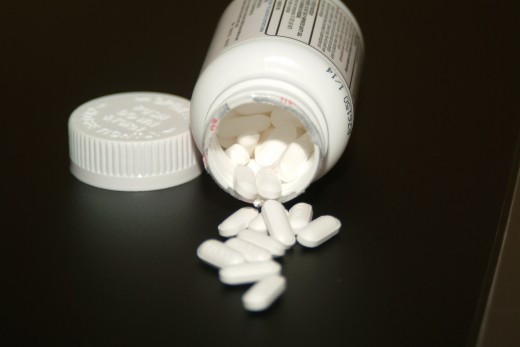
Medications and Supplements to Stay Away From After Having Cosmetic Surgery
Your plastic surgeon will need to know about any medications and vitamins, minerals, contraceptives, herbs or any natural supplements you're taking. Even those "natural" substances can bring complications when having surgery. They can cause reactions to anesthesia, or even increased bleeding risk during your operation. You will most likely be directed to stop taking aspirin and ibuprofen—while pain relievers with acetaminophen (Tylenol) are usually acceptable, but check with your doctor.
(See Tables below for medications and supplements to avoid.)
Autologous Blood Donation Prior to Cosmetic Surgery
What is a Autologous Blood Donation
If your red blood cell count is good (not anemic) you can be a autologous blood donor. What this means is that you can donate your own blood to be used during your own surgery. This is a really good way to assure no incompatible reactions occur, and that an infectious disease is not transmitted (transmission of infectious disease due to a blood transfusion is VERY rare these days, but can still happen) during transfusion. Autologous Blood Donation means you will be donating your blood within one month of your surgery. You may not require a blood transfusion during surgery, but should a situation pop up, it is always good to know that you have taken precautionary measures.
The Sleep and Pain Connection
- Pain Relief, Sleep is the Foundation
Live a Pain Free Quality Life through Sleep! Learn the stages of sleep at a glance and how they promote healing in the body. That's right, knowing how to get the best sleep can help alleviate chronic pain!
What About Smoking and Drinking Before and After Body Contour Surgery
Smoking and Healing Before and After Surgery
If you are a smoker, STOP SMOKING six weeks before you have surgery. This also means stay away from second-hand smoke. It is essential that you avoid any nicotine intake whatsoever—smoking, gum, patches, pipe, cigars, cigarettes, chew, etc.. Smoking has a tremendous negative impact on healing. One of its many ill effects on healing and the body, is the fact that it causes small blood vessels to shrink; resulting is less oxygen—vital for healing—getting to the surgery site. Smoking can also increase the risk associated with your lungs and anesthesia.
Alcohol and Healing Before and After Surgery
As with nicotine and smoking, it is important to avoid drinking alcohol the week before your surgery, and in some instances even longer. Alcohol thins the blood, making an increase of excess bleeding likely. Alcohol can also present negative results when combined with other medications you may be prescribed, or anesthetic agents during surgery.
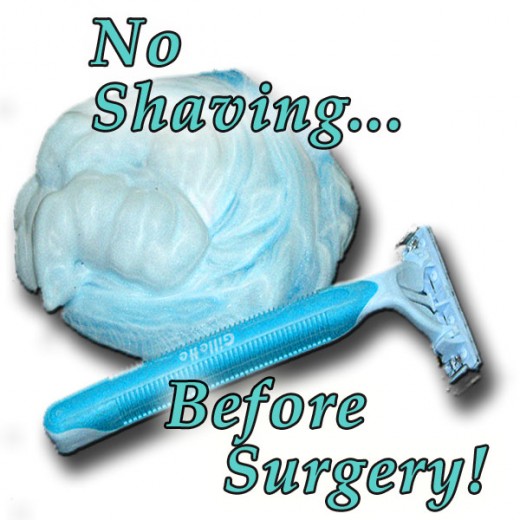
Hygiene and Hair Care Before Cosmetic Surgery
Hygiene Before Surgery
On the morning of, or the evening prior, you should bathe or shower using a very mild soap—your surgeon may provide you with a particular cleansing product. Do not apply any lotions, oils, creams, colognes, perfumes, or makeup to your body on the day of your procedure. Also, take off any toenail and fingernail polish.
Hair Care Before Surgery
You should NOT shave or wax away any hair in the area that you are having surgery. These aesthetic tasks can make you more vulnerable to infections. If you require shaving or hair removal in your surgery zone(s) prior to surgery, the medical staff will take care of it under sterile conditions, or in the operating room.
Herbs and Supplements to Avoid Prior to Surgery
Ackee fruit
| Alfalfa
| Aloe
|
Argimony
| Barley
| Bilberry
|
Bitter melon
| Burdock root
| Carrot oil
|
Cayenne
| Celery
| Chamomile
|
Chromium
| Coriander
| Dandelion root
|
Devil's club
| Dong Quai root
| Echinacea
|
Eucalyptus
| Fenugreek seeds
| Feverfew
|
Fo-ti
| Garlic
| Ginger
|
Gingko
| Gingko biloba
| Ginseng
|
Gmena
| Goldenseal
| Gotu Kola
|
Grape seed
| Green tea
| Guarana
|
Guayusa
| Hawthorn
| Horse chestnut
|
Kava Kava
| Lavender
| Lemon verbena
|
Licorice Root
| Ma Huang
| Melatonin
|
Muwort
| Nem seed oil
| Onions
|
Papaya
| Periwinkle
| Selenium
|
St. John's Wort
| Valerian/Valerian root
| Vitamin E
|
Willow bark
| Yellow root
| Yohimbe
|
Information derived from J.L. Sebastian, M.D., J.F. Capella, M.D., and J. P. Rubin, M.D.
Ibuprofen Medications to Avoid Prior to Surgery
Actron
| Acular (opthalmic)
| Advil products
|
Aleve
| Anaprox products
| Ansaid
|
Bayer Select
| Cataflam
| Clinoril
|
Clebrex
| Daypro
| Diclofenac
|
Dimetapp Sinus
| Dristan Sinus
| Etodolac
|
Feldene
| Fenoprofen
| Flurbiprofen
|
Genpril
| Haltran
| IBU
|
Ibuprin
| Ibuprofin
| Ibuprohm
|
Indochron E-R
| Indocin products
| Indomethacin products
|
Ketoprofen
| Ketorolac
| Lodine
|
Meclofenamate
| Meclomen
| Mefenamic Acid
|
Menadol
| Midol products
| Motrin products
|
Nabumetone
| Nalfon products
| Naproxen
|
Nuprin
| Ocufen (opthalmic)
| Orudis products
|
Oruvail
| Oxaprozin
| Piroxicam
|
Ponstel
| Profenal
| Relafen
|
Rhinocaps
| Sine-Aid products
| Sulindac
|
Suprofen
| Tolectin products
| Tolmetin
|
Toraldol
| Trendar
| Vioxx
|
Voltaren
|
Information derived from J.L. Sebastian, M.D., J.F. Capella, M.D., and J. P. Rubin, M.D.



